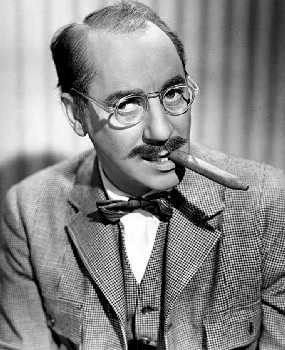The Bill Of Rights’ Freedom Of Expression — An Endangered Species?
By Gary M. Galles
IssuesInsights.com

Dec. 15 marked the anniversary of the Bill of Rights. Of those rights, the First Amendment’s guarantee of freedom of speech is perhaps the most celebrated. There is a good reason. After surviving a critical test from the Sedition Act of 1798, which tried to muzzle political opposition by making it illegal to “combine or conspire together, with intent to oppose any measure or measures of the government,” our freedom to express ourselves made America a place where people could openly criticize those in government power without ending up in jail, or worse. This is in contrast to many other countries.
This freedom to criticize government led to a typically American form of humor, where the threat of public embarrassment is used to keep political representatives in their place. For example, consider what some of America’s favorite humorists have said.
Groucho Marx:
“Politics is the art of looking for trouble, finding it, misdiagnosing it, and then misapplying the wrong remedies.”
Mark Twain:
“Suppose you were an idiot. And suppose you were a member of Congress. But I repeat myself.”
“It could probably be shown by facts and figures that there is no distinctly native criminal class except Congress.”
Will Rogers:
“If you make any money, the government shoves you in the creek once a year with it in your pockets, and all that don’t get wet you can keep.”
“On account of us being a democracy and run by the people, we are the only nation on earth that has to keep a government four years, no matter what it does.”
“There’s no trick to being a humorist when you have the whole government working for you.”
“Be thankful we’re not getting all the government we’re paying for.”
P.J. O’Rourke:
“The Democrats are the party that says government will make you smarter, taller, richer, and remove the crabgrass from your lawn. The Republicans are the party that says government doesn’t work and then they get elected and prove it.”
Subjecting government to deserved satire also extends beyond America’s humorists. Politicians have also noted some of the excesses and inadequacies of government, observed at close range.
Thomas Jefferson:
“If we were directed from Washington when to sow and when to reap, we should all want bread.”
Ronald Reagan:
“Government is like a baby: An alimentary canal with a big appetite at one end and no sense of responsibility at the other.”
Daniel Patrick Moynihan:
“The single most exciting thing you encounter in government is competence, because it is so rare.”
Many other Americans, famous or not, also have made contributions to the chorus.
Henry Adams:
“Practical politics consists in ignoring facts.”
Ambrose Bierce:
“In our civilization, and under our republican form of government, intelligence is so highly honored that it is rewarded by exemption from office.”
Milton Friedman:
“Nothing is so permanent as a temporary government program.”
H.L. Mencken:
“If a politician found he had cannibals among his constituents, he would promise them missionaries for dinner.”
Bob Wells:
“For every action there is an equal and opposite government program.”
Humor is often an effective way to protest government abuse, highlight the lack of logic behind government pronouncements and programs, expose government corruption and deflate “public servants” grown self-important. And America’s sense of humor can help defend liberty by resisting unjustified encroachments by our government.
But our just completed election has revealed massive limits on our freedom to express ourselves in the public square. Large areas of discourse, humorous as well as deadly serious, have been curtailed. And that curtailment was largely to protect our apparent next chief executive.
So it is particularly important to remember and celebrate that our Bill of Rights included our freedom to satirize our government in the First Amendment. To the extent our freedoms of expression are becoming more of an endangered species, it makes us less free now, and threatens to do even more of the same in the future.
Gary M. Galles is a professor of economics at
Pepperdine University.

